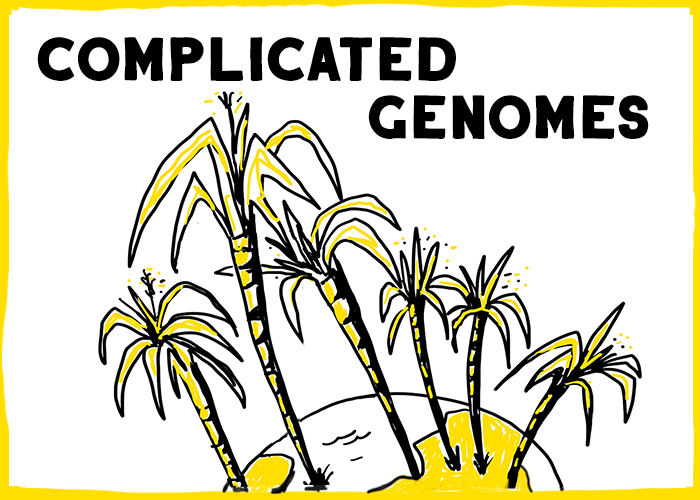Study promotes improved diagnostics for severe pediatric disease
HUNTSVILLE, Ala – A study of almost 16,000 children with intellectual disability and various congenital defects is providing insight to more precise connections to anomalies in the genome. Greg Cooper, Ph.D., a faculty investigator at the HudsonAlpha Institute for Biotechnology, together with colleagues at the University of Washington in Seattle, and a dozen other organizations, identified 59 potentially pathogenic copy number variants and associated genes that appear to be linked to such disorders. The paper is currently available in the online version of Nature Genetics.
CNVs are a category of DNA variation involving deletions or duplications affecting base pairs ranging from about one thousand to several million.
“The upshot is that in many of these cases, the mutation event causes a myriad of problems or issues," said Cooper. "Our methodology, basically statistical methods to refine the resolution of the array data we were using, enabled us to look at smaller deletions in the genome. This allowed us to begin unraveling the complicated genetics underlying some of the rare, severe pediatric disorders.”
The genomic study found an excess of large CNVs (>400,000 bases in size) in these pediatric cases compared to adult controls, with disease risk increasing with CNV size. The more severe developmental disorders were found to be associated with a higher CNV size.
“This type of research will eventually help physicians better diagnose very sick children, while essentially providing more information to families with children with intellectual and physical handicaps,” said Cooper.
Signature Genomics Laboratories headquartered in Spokane provided the samples used in the study. Cooper notes that the highly functional relationship between the academic, non-profit and for-profit participants is what made the project succeed. “This project would be difficult to execute on a purely academic basis.” He added that Signature Genomics was a major contributor in providing uniform case data and controls.
“I also cannot over emphasize the importance of patients participating in studies,” said Cooper. "When you have nearly 16,000 patient samples and a control of 8,000, you can more confidently identify relevant mutation events. "
The paper is available at this link.
Holly Ralston
hralston@hudsonalpha.org
256.508.8954
The HudsonAlpha Institute for Biotechnology in Huntsville, Alabama, is the cornerstone of the Cummings Research Park Biotechnology Campus. The campus hosts a synergistic cluster of life sciences talent – science, education and business professionals – that promises collaborative innovation to turn knowledge and ideas into commercial products and services for improving human health and strengthening Alabama’s progressively diverse economy. The non-profit institute is housed in a state-of-the-art, 270,000 square-ft. facility strategically located in the nation’s second largest research park. HudsonAlpha has a three-fold mission of genomic research, economic development and educational outreach.

